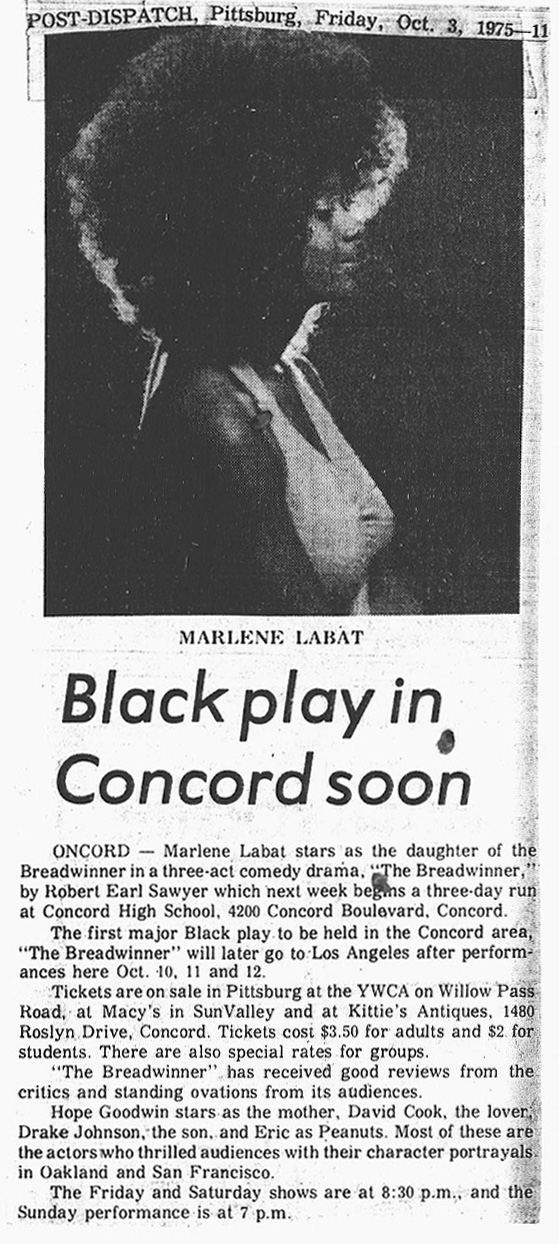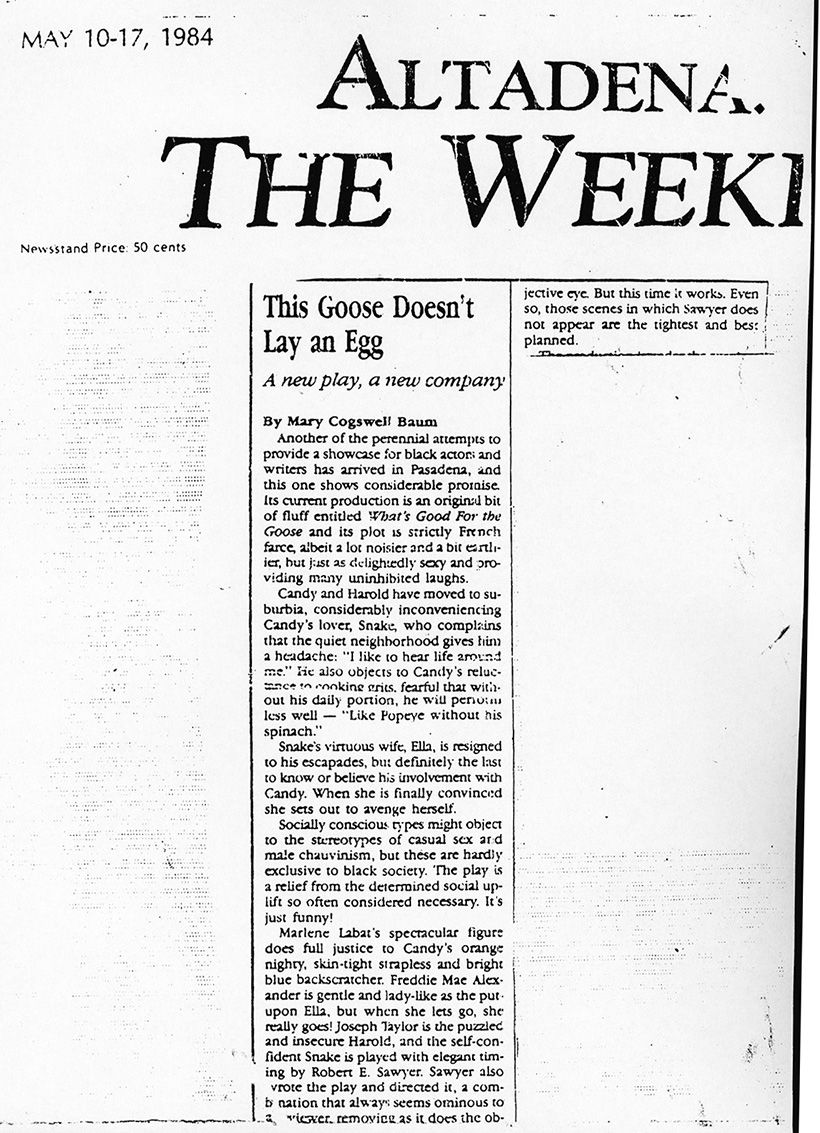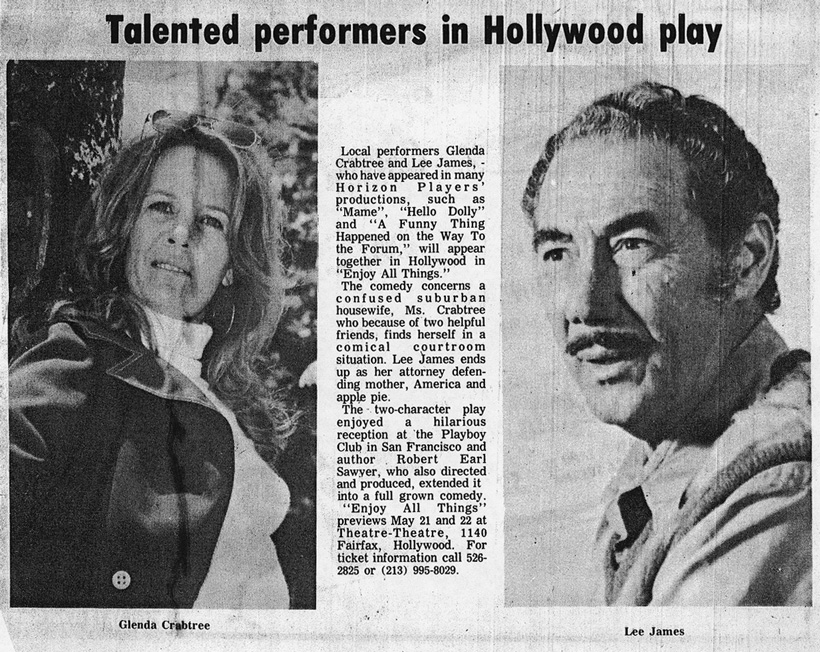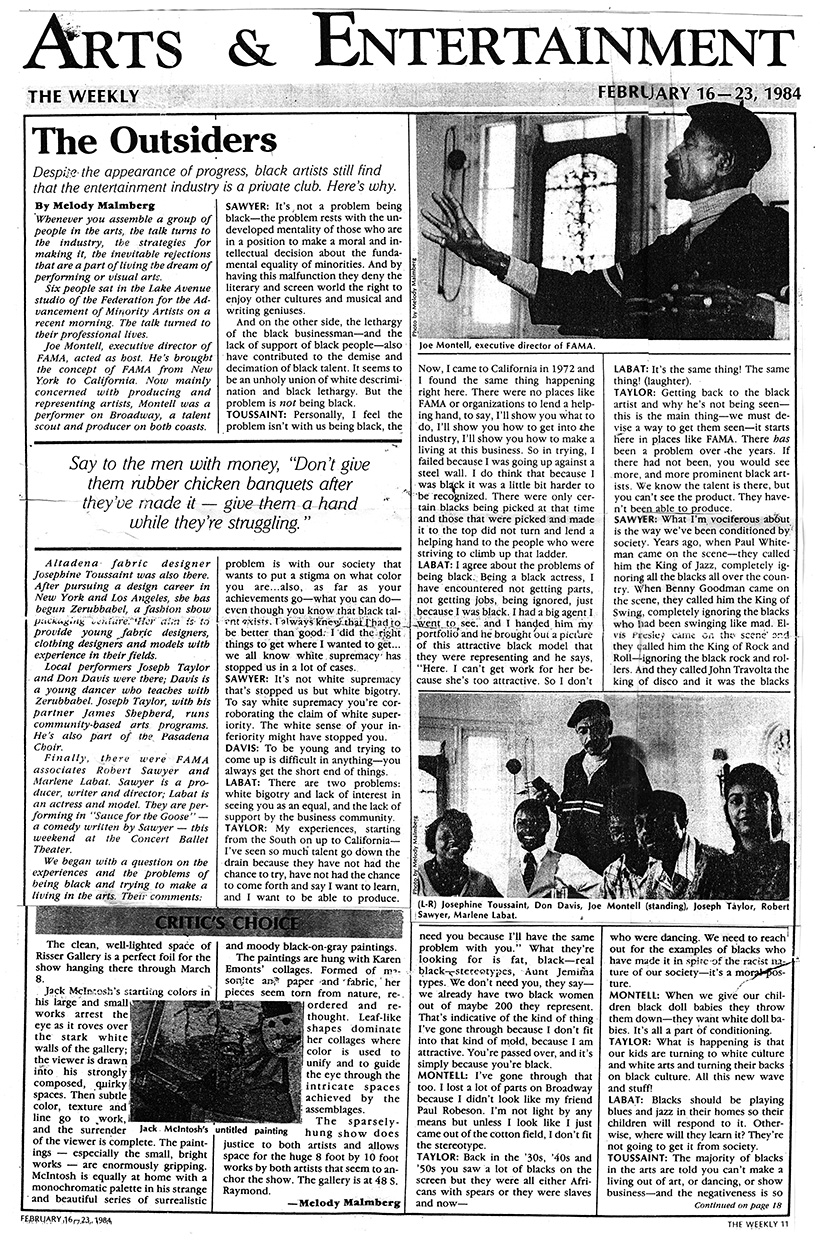Stephan Miller. 'Uninhibited Cast, Skilled Direction Bring Success to ‘The Breadwinner'. Seattle Post-Intelligencer, July 8, 1971. Quotations:
'One of the beauties of Robert Earl Sawyer’s play, 'The Breadwinner', is that it leaves you feeling so good. It leaves you feeling that whatever miseries consume you at the moment, those of the characters are so much worse and so much more gracefully overcome.'
'The play is essentially a slice-of-life in three acts. It deals with the efforts of Doris, a destitute but attractive black woman of the late-‘40s, to support her two high school-aged children after their father has left home and help make her daughter the first person in the alley to get a diploma.'
'We see a class struggle among all those who pass through this tiny ghetto apartment. We see a broken home - which could be any broken home - and with it we see the familial fidelity which binds a certain type of traditional Southern black.
We see a life steered by fears of judgment day. But most importantly, we see the black’s ability to laugh at himself and his condition in times of inescapable misery, without accusing anyone, white or black, for this distress. The themes are universal and uncontrived.'

'The Breadwinner,' written by Robert Earl Sawyer, Post-Dispatch, Pittsburg, CA, Friday, October 3, 1975, Page 11:

'What's Good For The Goose,' written by Robert Earl Sawyer, The Daily Review, Hayward, CA, Friday, August 22, 1996:

Mary Cogswell Baum. 'This Goose Doesn’t Lay An Egg'. The Weekly. Altadena. May 10-17, 1984.
Quotation:
'...it’s plot is strictly French farce, albeit a lot noisier and a bit earthier, but just as delightedly sexy and providing many uninhibited laughs.'

'Enjoy All Things,' written by Robert Earl Sawyer, Los Angeles Times, Sunday, May 30, 1976.
Quotation: '...rich dialogue gobs of pathos and humor...'

Melody Malmberg. 'The Outsiders'. The Weekly. Altadena, February 16 – 23, 1984.
Despite the appearance of progress, black artists still find that the entertainment industry is a private club. Here’s why.
Six people sat in the Lake Avenue Studio of the Federation for the Advancement of Minority Artists on a recent morning. The talk turned to their professional life. Joe Montell, executive director of FAMA, acted as host. The guests were: Josephine Toussaint, Don Davis, Joseph Taylor, Robert Earl Sawyer and Marlene Labat. Quotations:
SAWYER: 'It’s not a problem being black- the problem rests with the undeveloped mentality of those who are in a position to make a moral and intellectual decision about the fundamental equality of minorities. And by having this malfunction they deny the literary and screen world the right to enjoy other cultures and musical and writing geniuses. And at the other side, the lethargy of the black businessman- and the lack of support of black people - also have contributed to the demise and decimation of black talent. It seems to be an unholy union of white discrimination and black lethargy. But the problem is ‘not’ being black.'
SAWYER: 'What I’m vociferous about is the way we’ve been conditioned by society. Years ago, when Paul Whiteman came on the scene- they called him the King of Jazz, completely ignoring all the blacks all over the country. When Benny Goodman came on the scene, they called him the King of Swing, completely ignoring the blacks who had been swinging like mad. Elvis Presley came on the scene and they called him the King of Rock and Roll- ignoring black rock and rollers. And they called John Travolta the King of Disco and it was the blacks who were dancing. We need to reach out for the examples of blacks who have made it in spite of the racist nature of society- it’s a moral posture.'.
